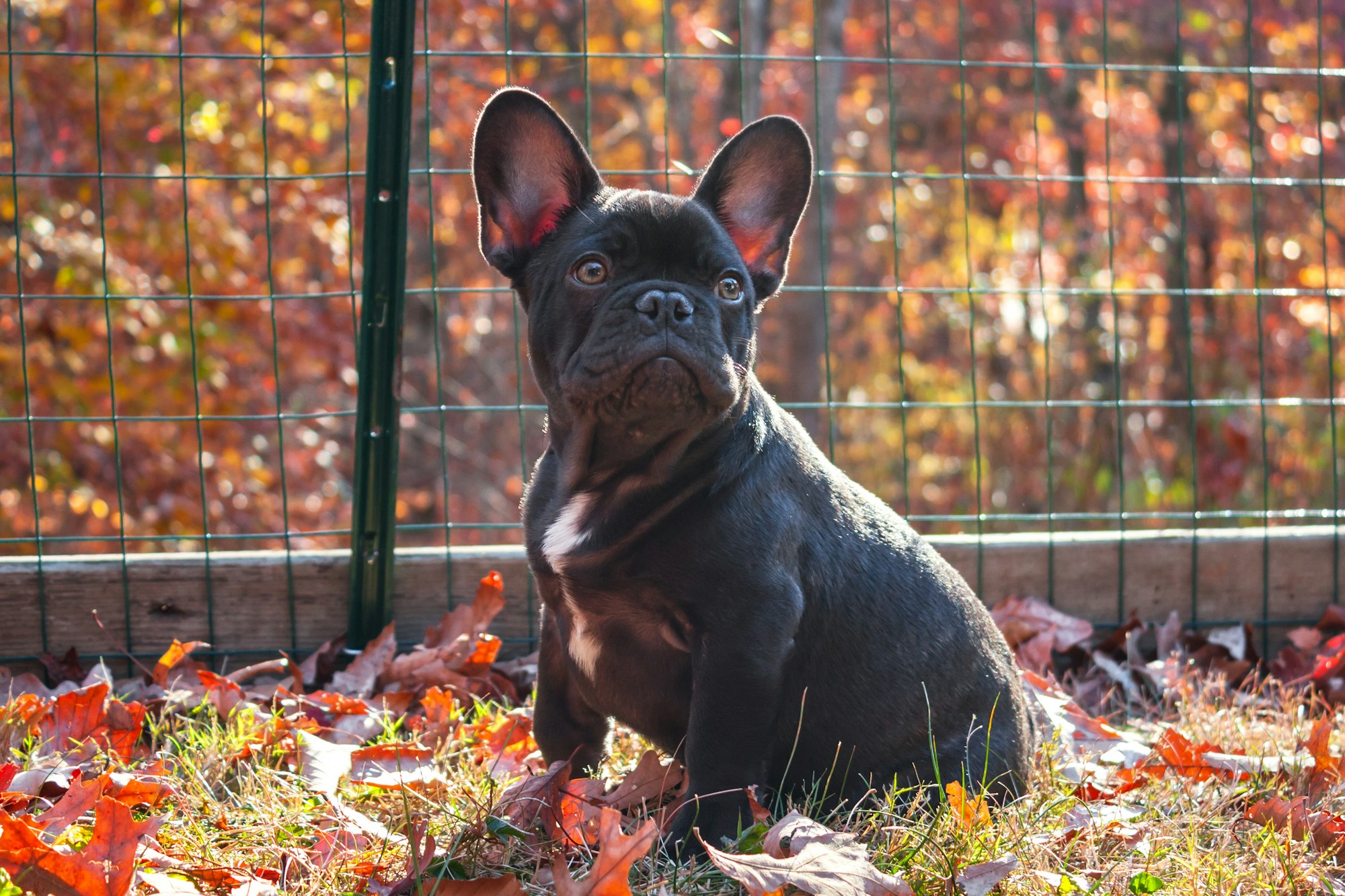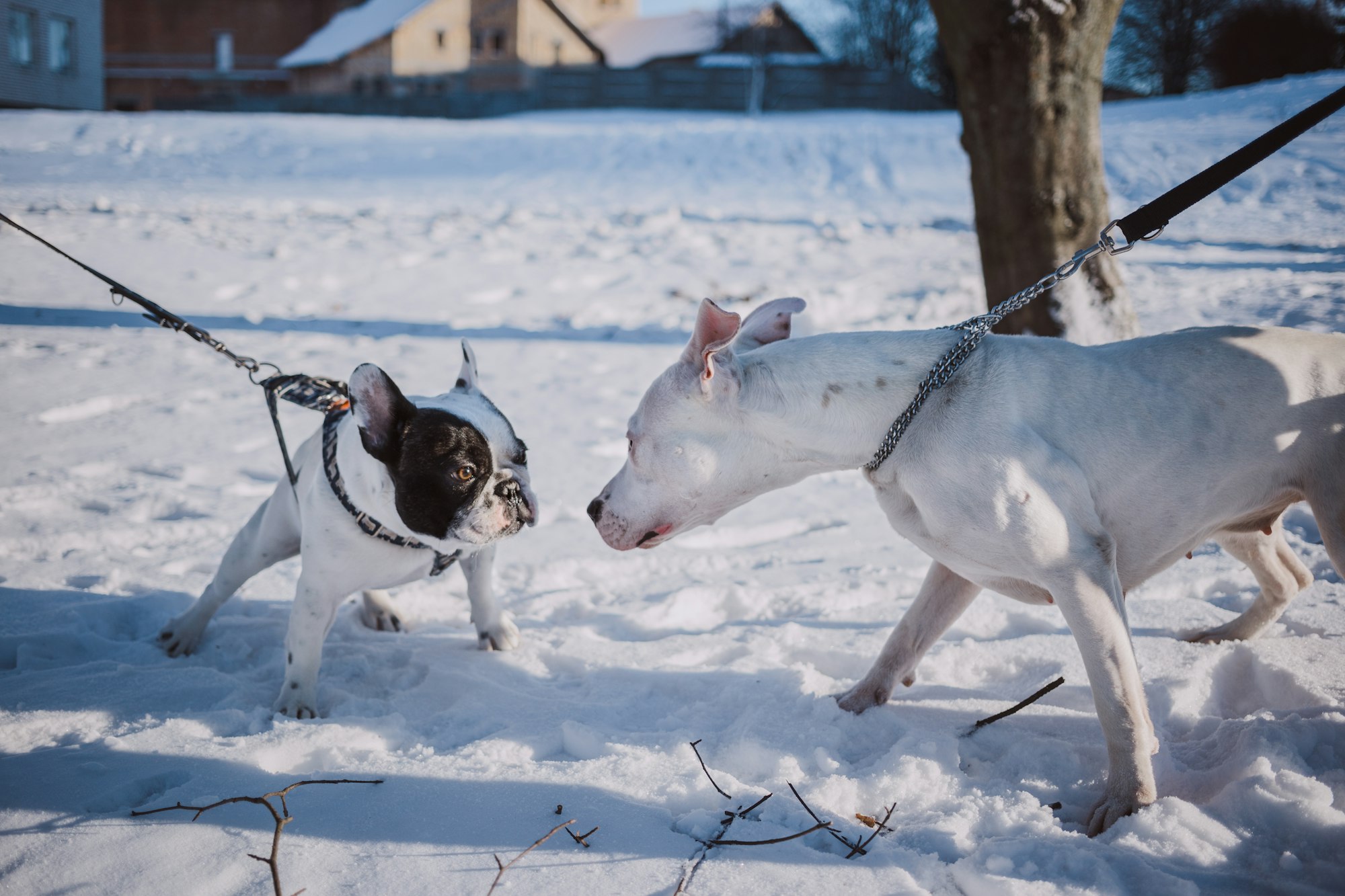The world of dog breeds is as diverse as it is captivating, and nestled within this fascinating spectrum are bulldog breeds. From English to French, these bulldogs have stolen the hearts of many, becoming an integral part of families worldwide.
The Origin and Evolution of Bulldog Breeds
Initially bred for bull-baiting in England, bulldogs were muscular, aggressive dogs. When this sport was outlawed in the mid-19th century, breeders worked diligently to bring out their gentler sides. The tenacious English Bulldog transformed into a charming companion that many know and love today.
In comparison, French Bulldogs emerged slightly differently. During the Industrial Revolution, lace workers from England relocated to France, bringing along smaller bulldogs, which were a hit in the French society. Thus, the adorably "bat-eared," compact French Bulldog was born.

Unveiling the English Bulldog
English Bulldogs, with their distinctive push-faced appearance and sturdy bodies, have a unique allure. These dogs are known for their calm, friendly temperament, making them excellent family pets. They do well in apartments as they don't need much exercise.
However, owning an English Bulldog means being alert about their health. They are prone to certain health issues like breathing difficulties and hip dysplasia. Providing them with dog probiotics can help maintain their gut health and overall well-being.
Delving into the French Bulldog
Unlike their English counterparts, French Bulldogs are smaller with a lighter bone structure. They stand out with their erect "bat ears" and charming, expressive eyes. Like the English Bulldog, they are also excellent companions, known for their affectionate, playful nature.
Their compact size makes them suitable for apartment living. However, they too have specific health concerns, primarily related to their brachycephalic (short-nosed) nature. It's advisable to give melatonin for dogs like these to maintain a healthy sleep cycle and reduce stress.
Bulldog Care and Management
Both breeds require consistent care and attention. Regular grooming, nail trimming, and dew claws care are essential to keep them healthy and comfortable. Bulldogs have a propensity to gain weight, so a balanced diet and regular, moderate exercise are important.
Though not known for their athleticism, both French and English Bulldogs enjoy short walks and play sessions. Consider using pill pockets for dogs when giving them medication as bulldogs can be stubborn at times, making it a challenge to administer medicines.
Bulldogs have a unique fur that's short but sheds moderately. Regular brushing can keep their coat healthy and minimize shedding. It's also crucial to keep an eye out for flea bites on dogs as these can lead to discomfort and potential skin infections.
Bulldogs in Today's World
Bulldogs have adapted well to contemporary living, becoming popular pets. These breeds have a strong presence in pop culture, thanks to their unique appearances and affable personalities. Celebrities like David Beckham, Lady Gaga, and Hugh Jackman are known for their love of Bulldogs.
Today, bulldogs are not just companions but are also serving as therapy dogs. With the recent advancements in veterinary science, dogs stem cell therapy has been used to treat conditions like osteoarthritis in Bulldogs, significantly improving their quality of life.
The Perfect Bulldog for Your Home
Deciding between an English and a French Bulldog can often be a challenge. Each breed has its own unique charm, but what matters most is the fit with your lifestyle and living conditions.
For example, English Bulldogs, despite their tough exterior, are real homebodies. They prefer a good nap to an afternoon jog and will be happy with a short daily walk. This low exercise demand makes them perfect for laid-back owners or those living in apartments without much outdoor space.
Training Bulldogs: A Rewarding Experience
Training a bulldog, be it English or French, can be an exciting yet challenging process. These breeds are known for their stubborn streak. However, with patience, consistency, and positive reinforcement, training can turn out to be a rewarding bonding experience.
Remember, Bulldogs respond well to praise and treats. It's essential to start training them at a young age to instill good behavior and habits early on. Enrolling them in puppy classes can be a great way to socialize them and encourage good manners.

Bulldogs and Families
Both the English and French Bulldog are excellent choices for families. Their gentle, loving nature and patience with children make them an ideal family pet. Bulldogs are known to form strong bonds with their families, thriving on affection and attention.
Remember, despite their gentle nature, it's always important to teach children how to interact with dogs appropriately. Bulldogs, with their stout build and unique facial structure, are susceptible to overheating and should not be over-exerted during play.
A Lifelong Companion
A Bulldog's life expectancy ranges from 8 to 10 years. While this may seem short compared to other breeds, Bulldogs tend to lead a full and happy life with proper care. Regular veterinary check-ups, a balanced diet, and an adequate exercise routine can ensure your Bulldog stays healthy and content.
Remember, Bulldogs are known to age gracefully. They may slow down with time, but their loving and loyal nature remains constant. They truly embody the saying "a dog is a man's best friend".
Bulldogs – More Than Just a Pretty Face
Behind their memorable faces and compact bodies, Bulldogs are dogs of great character. Each Bulldog, whether English or French, is an individual with a unique personality. They're known for their gentle, amicable demeanor, but they also have a surprising sense of humor, which is often reflected in their quirky and playful antics.
The English Bulldog, for instance, might strike you as a slow and solemn dog. But let them loose with a favorite toy, and their playful side quickly emerges. On the other hand, the French Bulldog, despite its small size, carries a large dose of personality. Their curious, playful nature and charming expressions can win over even the sternest of hearts.

The Joys and Challenges of Bulldog Ownership
Owning a Bulldog comes with its own set of joys and challenges. They are undeniably adorable, with their squat physique, large expressive eyes, and the wrinkles that add to their distinct charm. Their amicable nature and loyalty make them an excellent companion and a great addition to any family.
However, the road to Bulldog ownership isn't always smooth. Their unique physiology requires particular attention to their diet and exercise. Obesity is a common problem in Bulldogs, so it's crucial to monitor their food intake and ensure they get regular exercise.
Also, remember that Bulldogs are not fans of extreme temperatures. Their brachycephalic nature makes them prone to overheating. Always ensure they have access to shade and fresh water during hot weather.
The Cost of Owning a Bulldog
If you're considering getting a Bulldog, be it English or French, it's crucial to factor in the potential costs. Bulldogs are a brachycephalic breed, and this comes with increased potential for certain health problems, which can lead to high veterinary costs.
Whether it's routine care or addressing specific health issues, such as hip dysplasia, respiratory problems, or skin conditions, it's vital to ensure you're prepared for the financial responsibility that comes with owning a Bulldog. It's always advisable to consider pet insurance to help manage these potential costs.
Bulldogs – Worth Every Wrinkle
Despite the potential challenges, Bulldogs are undeniably worth it. Their loving nature, loyalty, and distinctive charm make them more than just pets; they become part of the family.
In conclusion, the world of Bulldog breeds, from English to French, is one filled with love, joy, and a bit of slobber. As a Bulldog owner or enthusiast, every day brings a new adventure filled with playfulness, endearing stubbornness, and plenty of affection. With a Bulldog in your life, rest assured there will never be a dull moment.
Harnessing Technology: Introducing Fi Dog Collars
In this modern age, technology has permeated nearly every aspect of our lives, including pet care. Among the most notable innovations are Fi dog collars, which are smart collars designed to help you keep a close eye on your Bulldog's health and safety.
Fi Dog Collars: A High-Tech Companion for Your Bulldog
Whether you own a sturdy English Bulldog or a playful French Bulldog, ensuring their safety and health is paramount. Fi dog collars can help make this task a little easier and more efficient.
These smart collars are equipped with GPS technology, allowing you to track your Bulldog's location at all times. This feature is especially useful if your Bulldog ever wanders off or gets lost – a concern for any dog owner.

Health Monitoring with Fi Dog Collars
Fi collars are not just about location tracking; they also serve as a health monitoring tool. Bulldogs, being prone to obesity, can greatly benefit from this. The collar tracks your Bulldog's daily steps, helping you ensure they're getting enough exercise.
Remember, both English and French Bulldogs are not endurance athletes but they do need regular, gentle exercise. With a Fi collar, you can set daily step goals for your Bulldog, encouraging healthy habits and assisting in weight management.
Safety First: Night Walks with Fi Dog Collars
Fi dog collars come with an LED light feature, perfect for evening or early morning walks. Bulldogs, with their brachycephalic nature, fare better in cooler temperatures. Therefore, walks during the cooler parts of the day are often recommended. The LED light on Fi collars enhances visibility, ensuring the safety of your Bulldog during these walks.
Frequently Asked Questions
1. What is the Difference Between English and French Bulldogs?
English Bulldogs are typically larger and heavier than French Bulldogs. They have a broad, muscular physique and a characteristic pushed-in face. French Bulldogs, on the other hand, are smaller with a more compact build, and their distinctive feature is their erect "bat ears". Both breeds have a friendly and gentle disposition.
2. Are Bulldogs Good Family Pets?
Absolutely. Both English and French Bulldogs are known for their gentle, affectionate nature. They're excellent with children and are generally good with other pets. However, their care needs should be considered, including their need for a cool environment, potential health issues, and regular, moderate exercise.
3. How Can I Keep My Bulldog Healthy?
Regular veterinary check-ups, a balanced diet, and moderate exercise are crucial for a Bulldog's health. Consider using dog probiotics and administering melatonin for dogs if recommended by your vet. Bulldogs are prone to overheating, so always provide a cool resting place and fresh water.
4. What is a Fi Dog Collar and How Can it Help My Bulldog?
A Fi dog collar is a smart collar equipped with GPS technology for tracking your dog's location and activity levels. It's especially helpful for Bulldog owners to monitor their pet's exercise levels, given Bulldogs' propensity for obesity. The collar's LED light feature also enhances safety during early morning or late evening walks.
5. Are Bulldogs Prone to Health Issues?
Yes, both English and French Bulldogs can have certain breed-specific health issues due to their brachycephalic (short-nosed) nature and specific body shape. Common health concerns include breathing difficulties, hip dysplasia, and skin conditions. However, with regular veterinary care and a healthy lifestyle, many of these issues can be managed effectively.
6. What is the Lifespan of Bulldogs?
The typical lifespan of a Bulldog, both English and French, is around 8 to 10 years. However, lifespan can vary depending on various factors, including overall health, diet, exercise, and genetic factors.
7. What is the Best Way to Train Bulldogs?
Bulldogs respond well to positive reinforcement training methods. Consistency, patience, and rewards (like treats or praise) are key. Bulldogs can be stubborn, so training can take time and patience. Starting from a young age and socializing them well can lead to a well-behaved and balanced dog.